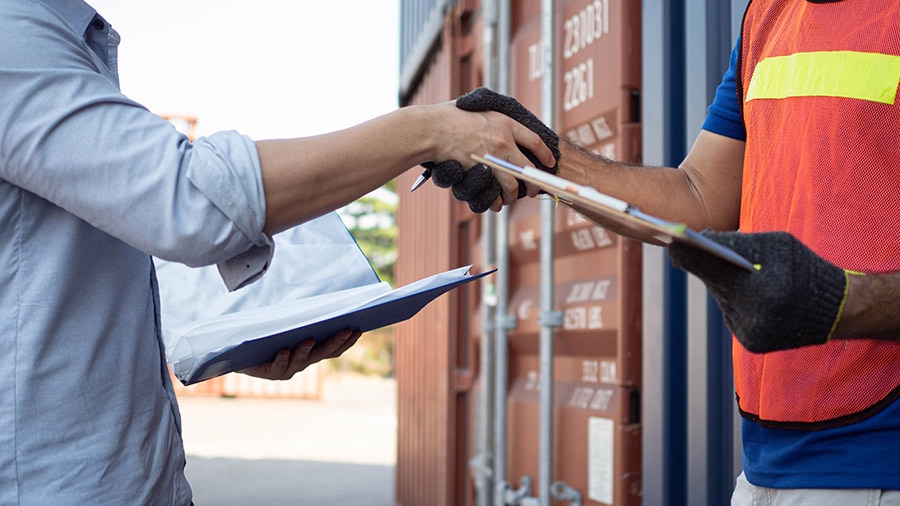24/7 service
When your shipping terms include 24/7 service, the carrier agrees to be available when and if you need them. This ensures that you can get immediate assistance with urgent or last-minute issues. This arrangement is likely best if your company operates outside of standard business hours.
If you arrange 24/7 service for the shipment of your goods or materials, check with the carrier to ensure that all support functions are available 24/7. This includes tracking of your shipment and someone to contact to make a claim if there is a problem.
You should also review the communication methods used by the carrier and their typical response time so you can have the peace of mind of knowing they really will be available when you need them.
Liability and insurance
When trusting a shipping company with valuable goods or materials, you need to know the items are insured in transit in case something goes wrong.
Here's a process you can use to make sure your items are fully covered:
- Find out the shipping company’s maximum liability limits to determine if the value is high enough to replace your goods if a problem arises. Often, you will find it is insufficient.
- If the carrier does not have enough insurance, explore options for third-party shipping insurance. Look for a policy that offers declared value coverage, as that means the insurer will pay what you say the goods are worth and what you insure them for, not what they determine the fair market value is at the time an incident occurs.
- Since you want to ensure a seamless and simple claim experience if a problem happens, familiarize yourself with the carrier's claim process, including the documentation required and the deadline for making a claim.
- When buying insurance through a third party or working with a carrier that can provide you with the desired insurance, you should also do a cost/benefit analysis to determine exactly how much you want to spend insuring your shipment.
This process may vary depending on the value and fragility of the items you are sending, so if you send various shipments, it may need to be determined on a case-by-case basis.
Incoterms (for international shipping)
International Commercial Terms (Incoterms) define the rights and responsibilities of the shipper and carrier when items are shipped internationally.
Incoterms should determine who is responsible for customs clearance, loading, and unloading goods or materials. The parties will need to agree on who bears the risk of damage at each stage of the journey as the goods are transferred overseas and to their final destination.
Because of customs and import costs, the landed cost of your goods will be different when you ship abroad. When setting your pricing strategy, you should factor in the added expenses associated with overseas shipments.
Because international trade rules are often complex and can change quickly, companies shipping items internationally may wish to work with a professional to help them establish the right processes.



















